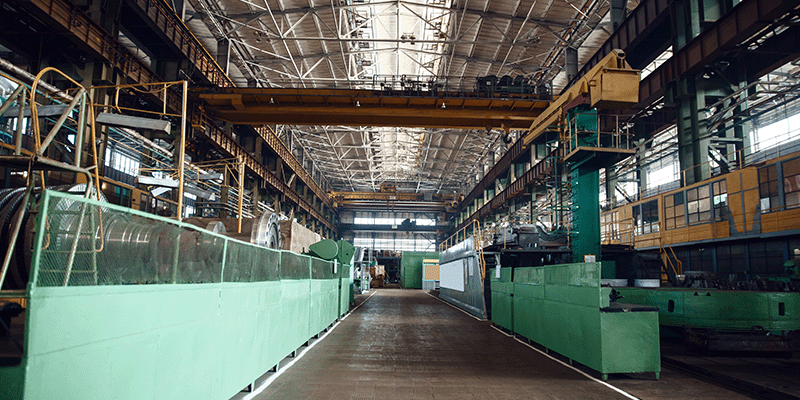The joined up nature of our global economy today means that the ripple effect of policy changes by major economic powers can be felt across the globe, from Wall Street to Walsall. As a result of recent trade policy changes, many UK small business owners are asking “what is a tariff, and how will these new measures affect my company?”
Put simply, a tariff is a tax imposed on goods and services imported into a country, making foreign products more expensive on the market. This is usually done to encourage more domestic purchasing and boost the nation’s economy.
The announcement and implementation of new US tariffs has established a stressful landscape for UK business owners to navigate, with smaller enterprises particularly vulnerable to these international trade shifts. This guide explores the effects of tariffs on small businesses in the UK. We will also share insights into both the key challenges faced, and potential strategies directors can look to implement to improve long-term resilience.
What is the Difference Between a Tax and a Tariff?
Before diving further into the effects of tariffs for small businesses in the UK, it’s important to understand exactly what distinguishes them from a regular tax. While both may be government-imposed financial charges, each serves a distinct purpose.
Taxes are primarily viewed as an instrument to generate revenue to boost the budgets of government operation and public services. Whereas tariffs are specifically levied on only imported goods — with the dual purpose of raising revenue while also protecting domestic industries from foreign competitors.

How New US Business Tariffs Affect UK Small Businesses
The US tariff landscape has evolved rapidly in recent months, creating a complex environment for UK exporters. Here’s what’s happened:
- A baseline 10% tariff was imposed on most imported goods entering the US, including those from the UK.
- A 25% tariff was placed on all aluminium and steel exported to the US.
- A 25% tariff on all cars and car parts exported to the US was also introduced.
- Specific higher tariffs targeting certain countries:
- 25% on all goods coming from Mexico and Canada.
- Tariffs as high as 145% on goods coming from China.
Why Tariffs Matter to UK Small Businesses
When news about global trade disputes first breaks, the discourse is often focused on how worldwide corporations will be impacted. However, tariffs can often quietly and suddenly affect smaller businesses around the world — sometimes even those that don’t directly deal in import or export.
As a result of the recent implementation of US tariffs changes under the Trump administration, the landscape for UK businesses has become more difficult to navigate. This is certainly the case for smaller enterprises, as they are particularly vulnerable to sudden international trade shifts. Immediate financial consequences of tariffs for small business owners include:
- Goods Costs Increase: Even if your business doesn’t actually import or export anything to the United States, your suppliers might. As a result, if their costs go up significantly, the likelihood this increase will pass down the chain to you is relatively high.
- Supply Chain Disruption: Whenever new tariffs are introduced, businesses will often be required to consider their options regarding the goods they both import and export. This process can delay your supply chain, cause shortages in key stock, or even require you to need to renegotiate contracts on new and potentially inferior terms.
- For Example: A UK clothing retailer may discover that, while their direct supplier is based in Europe, the fabric actually originates from China and passes through US processing — making the retailer’s supply chain vulnerable to tariff increases.
- Reduced Foreign Competition: If you regularly export goods to the US, the new business tariffs will make your products more expensive for American consumers and businesses — thus making it more difficult to compete against tariff-free local alternatives who are now likely to be cheaper.
- Cash Flow Issues: Perhaps the most pressing concern with the new tariffs for small business owners is the impact they can have on cash flow. With limited cash reserves, many small enterprises are left vulnerable to small changes in income or rising costs. Without effective cash flow management, even small disruptions can lead to serious liquidity issues.

While tariffs are often viewed as a negative, they can sometimes create new opportunities for UK businesses — not just take them away. If US tariffs make Chinese, Mexican, and Canadian imports significantly more expensive, American buyers will likely look elsewhere. And while the purpose of the tariff increase is to bring manufacturing back to the US, they could still look to UK suppliers as, compared to the China import rates, the cost to import from the UK is much less.
On top of that, global companies might move their manufacturing away from these heavily tariffed countries to avoid significant trade barriers — which could open up new demand for UK-based manufacturers, suppliers, and service providers.
Sectors Most Affected by Business Tariffs in the UK
The effects of tariffs can be far-reaching, especially for industries reliant on exports. As the US raises import duties on a wide range of products, many UK businesses are now dealing with the fallout. For small business owners, the impact of these business tariffs can mean reduced competitiveness, squeezed margins, and threats to longevity.
Below are a selection of the sectors currently under the greatest pressure:
- Automotive Industry: Cars are the top export from the UK to the US, worth an estimated £9 billion per year, making up 27.4% of total UK car exports (according to the Office for National Statistics’ 2024 international trade report). However, the added costs caused by the new tariffs could result in factories needing to close and countless job cuts being required.
- Manufacturing & Steel: An industry already struggling under the added pressure of rising energy costs, dedicated tariffs of 25% on any steel and aluminium could further destabilise the sector. In their February industry statement, UK Steel warned that the move could prove “a devastating blow” to the sector.
- Food, Drink & Spirits: Premium UK exports of food and drink products such as cheese, gin, and Scottish whisky, could face price hikes or lost profits due to the rising cost of exporting goods stateside.
- Retail: Tariffs on goods from China could severely impact UK retailers, especially those that rely on international supply chains. Brands like ASOS, Dr Martens, and JD Sports saw share prices dip immediately after the new tariffs were announced. For smaller retailers, these pressures can increase the risk of financial instability, particularly in an already challenging trading environment. In such cases, understanding the early signs of strain — and where to turn for retail insolvency support — can be vital
- Construction: Any construction firms supplying US projects, or those dependent on imported components, are faced with the prospect of significantly increased costs. The impact of this is compounded by the typically slim profit margins in the sector, putting extra pressure on already strained operations. Where problems escalate, firms may need to consider their options through specialist construction and manufacturing insolvency guidance.
Early Warning Signs: When Tariffs Threaten Business Viability
Small business owners need to be able to recognise when tariff-related challenges are beginning to threaten their company’s survival. Staying vigilant regarding these key warnings signs could mean you’re able to take action before it gets too late:
- Cash Flow Issues: If your company finds itself consistently struggling to meet payment obligations, or is relying heavily on credit facilities to maintain standard operations, tariff-induced cost increases could be pushing you toward insolvency.
- Falling Profit Margins: Should profit margins continue to shrink, despite efforts being made to maintain operations and pricing as much as possible, it could be an indication that your business may not be able to sustainably absorb cost increases.
- Loss of Key Customers: If your company relies on the US-market; as tariffs force price increases, it’s possible you may notice a sudden and significant loss of American customers — which can contribute to a rapid destabilisation of your business.
- Supply Chain Instability: Should your suppliers begin demanding upfront payments, raising their prices dramatically, or shortening credit terms, it could severely impact your operation going forward.
If you’re experiencing several of these warning signs and are uncertain about your business’s tariff risk exposure, it may be time to consult with a business recovery specialist who can assess your situation and recommend appropriate steps.
How Small Business Owners Can Adapt to Tariffs
While the impact of the new tariffs for small business owners could be significant, there are several strategies that can assist you in navigating the challenging landscape with confidence:
Review Your Supply Chain
The first step in ensuring tariff resilience for your business should be gaining total visibility into the possible vulnerabilities in your supply network. We recommend you start out with a comprehensive analysis that maps how each link in your chain could be affected by the new US tariff regime. This research and forethought will allow you to explore your alternative options.
Many business owners looking into their chain find that the greatest risks often lie, not with their suppliers, but further up the chain with their suppliers’ suppliers. By creating a complete map of your network, you can better identify potential issues that could arise in the future.

Strengthen Your Safety Net
The impact of tariff rises can very quickly destabilise even ‘healthy businesses’, making proper financial preparation all the more vital. You should start off by building up a dedicated cash reserve for the specific purpose of helping you absorb tariff-related cost increases. While traditional advice would point to a safety net of around three months of operating expenses to weather a storm, the current volatility of the market may warrant a more substantial buffer
You should also conduct a thorough business health check to ensure that your company is operating as effectively and efficiently as possible. This could help you identify underperforming areas, potentially allowing you restructure and divert funds where they are needed most. Regardless of what measures you implement, it’s vital that you take proper time in order to prevent reactive decision-making.
Renegotiate Contracts
Your existing agreements likely weren’t designed with today’s volatile market in mind. Therefore, you should consider reviewing these contracts with your suppliers and look for opportunities to make the terms more flexible. A force majeure clause can provide an easy escape route if dramatic tariff increases were to fundamentally change the economics of your agreement.
When negotiating with suppliers, consider framing tariff management as a shared responsibility, rather than it needing to be adversarial — this has the potential to secure you better rates, while also strengthening your relationship.
Stay Informed
The modern trade landscape is always evolving. With this in mind, it’s vital that you do what you can to monitor any policy developments. It’s important to remember that the US tariff situation will continue to change over time, as countries implement countermeasures, and political priorities gradually shift.
Rather than occasionally checking business news, why not integrate dedicated time to compiling the latest trade news as part of your regular business review?
When Tariff Impacts Require Professional Financial Intervention
Despite their best efforts, many UK businesses will continue to struggle with the cost increases of the US tariff increases — and, for some, this will create an insurmountable challenge. Therefore, knowing when to seek professional advice is crucial. Consider seeking insolvency advice in the following scenarios:
- Sustained Negative Cash Flow: If your business is experiencing periods of sustained negative cash flow, with little improvement in sight, it’s likely time to contact insolvency professionals.
- Creditor Pressure: If suppliers are beginning to refuse deliveries or demanding payment upfront, creditors are issuing formal demands, or you’re receiving statutory demands, you should consider these serious red flags.
- Tax Arrears: Falling behind on your VAT, PAYE, or Corporation Tax obligations is a critical warning sign that your company may require immediate professional advice.
- Director’s Personal Guarantees at Risk: When the impact of tariffs threatens to have a knock on effect on personal guarantees you’ve provided to secure business financing, seeking early advice can help you to protect your personal assets and financial future.
- Financing Difficulties: If prospective lenders are refusing additional credit, or are requiring personal guarantees where they previously did not, this could indicate that they perceive an increased risk in dealing with you.
Engaging with insolvency specialists early on gives small business owners the best chance of avoiding a crisis. With timely intervention, a broader range of strategic options — such as business restructuring, Company Voluntary Arrangement, and administration — can be explored and implemented effectively. This is particularly important when external pressures, such as the effects of tariffs or shifts in market demand, begin to strain cash flow.
Building Resilience in an Uncertain Trade Environment
While the strategies outlined throughout this guide can help many businesses to weather the tariff challenges, some situations will require specialised expertise and intervention. If your business is experiencing persistent issues with cash flow or pressure from creditors, it may be time to consult with insolvency and business recovery specialists.
While the current tariff landscape does present legitimate, serious challenges for UK small businesses, with proactive management, strategic adaptation, and timely advice when needed, many businesses will not only be able to survive, but come out the other side more resilient and ready for anything.
How Inquesta Can Help Navigate the Challenges of Tariffs for Small Businesses
For small businesses concerned about the impact of new US tariffs on their operations and financial future, our team of insolvency and business recovery specialists can provide tailored guidance.
Our services include:
- A business health check to ensure your company is running as it should be — and is as safe as possible from future dangers.
- Formal recovery and restructuring options when tariff impacts create significant challenges.
- Helping you close your business in the most efficient and tax-compliant way possible should the impact of tariffs be too much to overcome.
Are you ready to develop your businesses new strategy following the new US tariffs? Contact us today for a no-obligation consultation.
This guide was prepared by Inquesta’s business recovery team, with over 15 years of experience helping UK small businesses navigate financial challenges.



